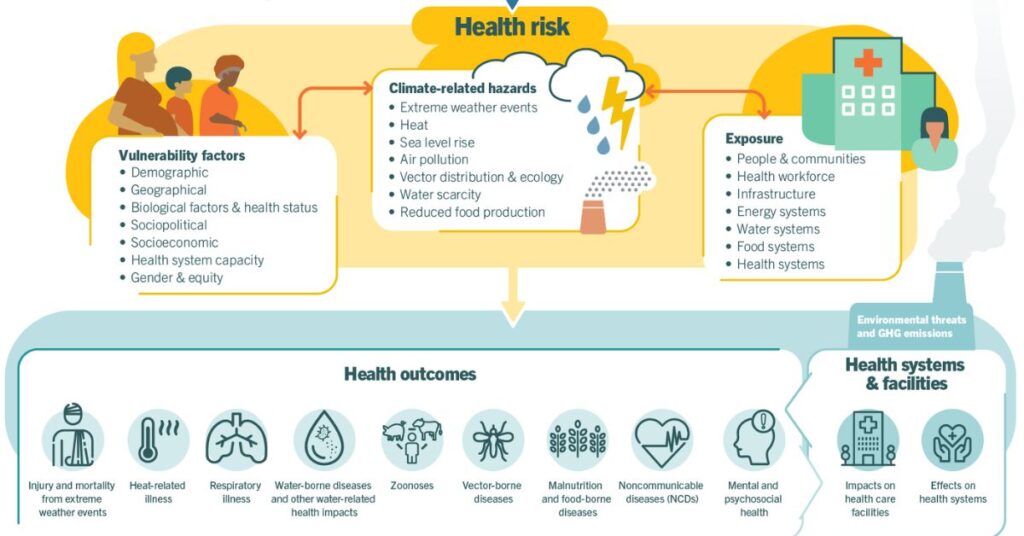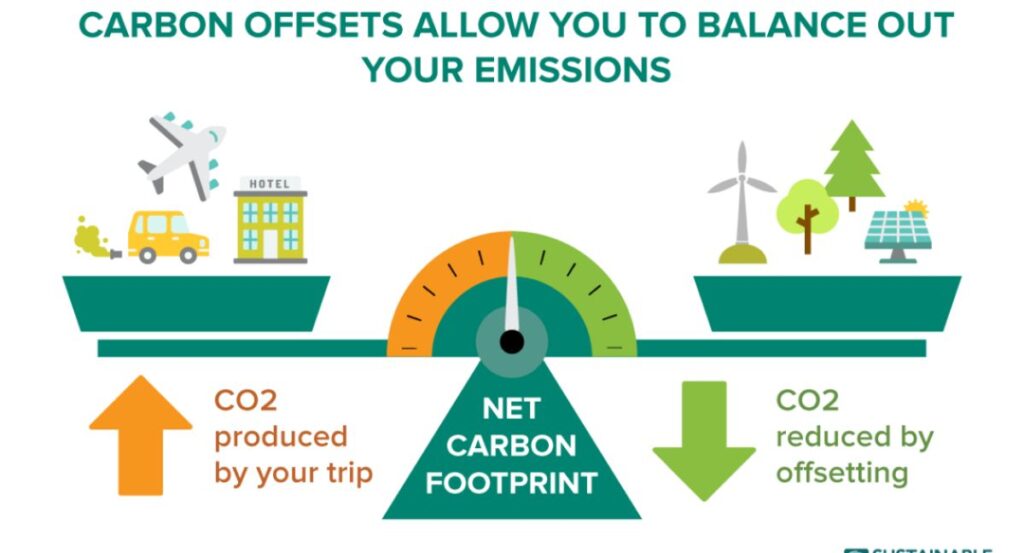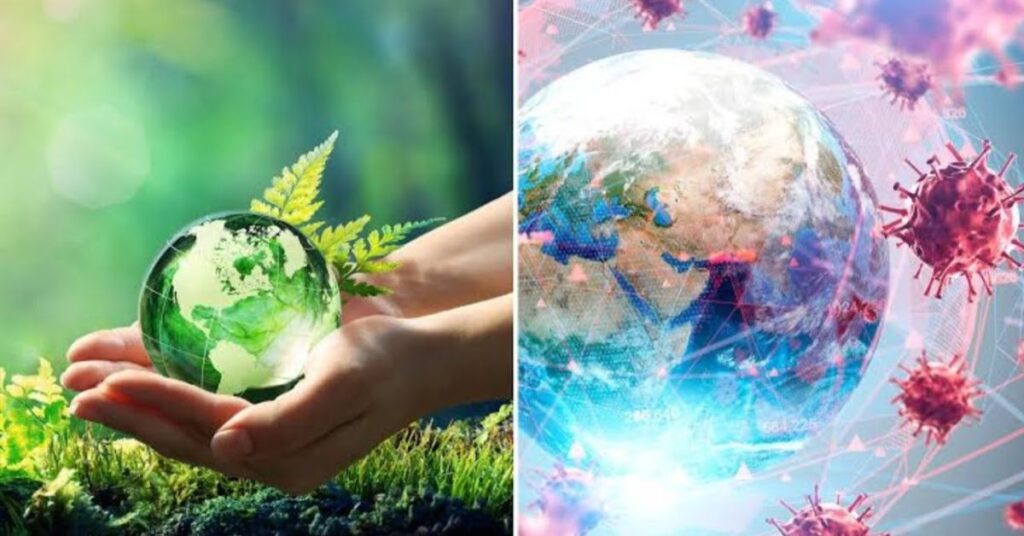Understanding Climate Change Impacts on Health and Building Public Resilience involves recognizing how environmental changes, like rising temperatures and extreme weather, affect our well-being. It also means finding ways to prepare communities for these changes, making them stronger in the face of climate challenges. This understanding is key to protecting both health and the environment.
Imagine a world where more people are falling ill from heat waves, polluted air, or waterborne diseases because of climate change. Understanding Climate Change Impacts on Health and Building Public Resilience helps us prevent such future crises. It empowers communities to take action now and protect lives.
By focusing on building public resilience, we can create systems that keep people safe from climate-related health risks. Simple actions, like improving healthcare and educating the public, can make a huge difference. With the right knowledge, we can ensure a healthier, more resilient future.
Islamic Perspective on Climate Change and Health Resilience
Islam teaches that humans are entrusted with the care of the Earth, emphasizing the need for environmental stewardship. The Qur’an states, “It is He who has made you successors (khalifah) upon the Earth…” (Qur’an 35:39), urging people to protect nature and use resources responsibly. This aligns with the need to address climate change impacts on health, as preserving the environment directly contributes to the well-being of all.
Additionally, Islam stresses the importance of collective responsibility, especially in times of crisis. The Qur’an guides us, saying, “And cooperate in righteousness and piety, but do not cooperate in sin and aggression.” (Qur’an 5:2). This principle calls for cooperation to build resilience against climate change, ensuring that communities work together to protect health and strengthen their ability to adapt to environmental challenges.
How Climate Change Impacts Health

Climate change impacts on health are complex and wide-ranging. Rising temperatures cause more frequent heat waves, which lead to heat-health risks like heatstroke and dehydration. Floods, hurricanes, and droughts disrupt clean water supplies, causing diseases like cholera. Increased air pollution from fossil fuels worsens asthma and heart conditions. Changing climates also affect crop yields, leading to food insecurity and malnutrition.
Infectious diseases spread more easily in changing environments. Warmer temperatures allow diseases like malaria and dengue to expand into new areas. These health impacts are worse for vulnerable groups, such as the elderly, children, and those in poverty. Addressing these issues requires urgent and coordinated action across all sectors.
WHO Climate Initiatives and Advocacy Campaigns
The WHO/Europe initiatives focus on reducing the health effects of climate change. They run advocacy campaigns to inform the public and policymakers. These campaigns include videos, factsheets, and training tools to teach people about climate-related health risks.
One example is the Keep Cool campaign, which shares tips for staying safe during heatwaves. These materials are translated into multiple languages to reach diverse audiences. WHO also participates in global climate forums, pushing for Paris Agreement commitments to include health priorities. By raising awareness, these efforts help build support for both mitigation and adaptation strategies
Benefits of Carbon Emissions Mitigation

Transitioning to a zero-carbon economy brings health and environmental benefits. Reducing fossil fuel use cuts air pollution, lowering rates of respiratory and cardiovascular diseases. Cleaner energy also reduces greenhouse gases, slowing climate change.
The Carbon Reduction Benefits on Health (Carbon H) tool shows that fulfilling Paris Agreement commitments could save 138,000 lives each year in Europe. It could also save up to $564 billion in health costs annually. These health co-benefits of climate action demonstrate the economic and moral need to act now.
| Key Benefits | Impact |
| Premature deaths avoided | 138,000 per year |
| Health cost savings | $244–$564 billion annually |
| Reduced air pollution | Fewer respiratory diseases |
Heatwave Preparedness and Response
Extreme heat is one of the biggest risks from climate change. WHO promotes heat wave preparedness and response through public education and health system support. The Keep Cool campaign teaches people how to stay cool and avoid heat-related illnesses.
Governments are encouraged to develop early warning systems for extreme heat. They also need to strengthen healthcare services to manage heat-related illnesses during emergencies. These measures help reduce heat-health risks and save lives. Preparing for heat waves also builds public health resilience, ensuring communities can adapt to future challenges.
You May also read this Blog: The Future of Solar Energy: Revolutionizing Power for a Sustainable Tomorrow
Sustainable Recovery Plans for COVID-19 and Climate Action

The COVID-19 pandemic offers a chance to rethink global recovery. WHO’s Manifesto for a Healthy Recovery from COVID-19 emphasizes green and sustainable recovery plans. It links pandemic recovery with actions to combat climate change, creating a healthier world.
These plans include investing in clean energy, improving public transportation, and enhancing healthcare systems. By combining efforts to reduce emissions with recovery efforts, we can build a zero-carbon economy that supports health and sustainability. This dual approach aligns short-term recovery with long-term climate goals, benefiting everyone.
European Climate and Health Observatory’s Role
The European Climate and Health Observatory plays a key role in helping countries adapt to climate change impacts on health. It provides tools, data, and guidance for governments and organizations. This includes early warning systems, climate indicators, and resources on policy adaptation.
For example, the Observatory offers detailed reports on how changing weather affects disease patterns. This helps nations prepare for risks like heat waves, floods, or new diseases. Collaboration between WHO, the European Commission, and other partners ensures that health
FAQ’s
How does climate change impact public health?
Climate change affects health through extreme weather events, heatwaves, air pollution, and the spread of diseases. Vulnerable groups like children and the elderly are at higher risk.
What are some strategies to reduce health risks from climate change?
Strategies include reducing greenhouse gas emissions, improving heat wave preparedness, enhancing healthcare systems, and promoting sustainable living practices.
How can WHO initiatives help with climate change and health?
WHO initiatives raise awareness, provide guidelines, and offer resources for governments to address climate-related health risks. They also promote global cooperation for health-focused climate action.
What is the role of public resilience in combating climate change?
Building public resilience involves strengthening healthcare systems, educating communities, and developing early warning systems to protect against climate-related health threats.
How can individuals contribute to addressing climate change health risks?
Individuals can reduce their carbon footprint, support policies for clean energy, stay informed about climate health risks, and prepare for extreme weather events.
Conclusion
Understanding climate change impacts on health and building public resilience is crucial for safeguarding both our planet and future generations. The increasing health risks from rising temperatures, extreme weather, and pollution demand urgent attention. By raising awareness and taking proactive steps, we can minimize the damage and protect vulnerable communities.
By focusing on preparedness and resilience, we can create systems that not only reduce the impact of climate change but also improve public health. Simple yet effective actions, such as reducing greenhouse gas emissions and investing in healthcare, can make a significant difference. The time to act is now, ensuring a healthier and more sustainable future for all.







